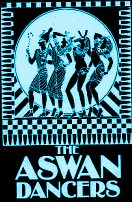
Shaabi Music
Underground Music That Really Isn't
-
Carnival of Stars Belly Dance Queen
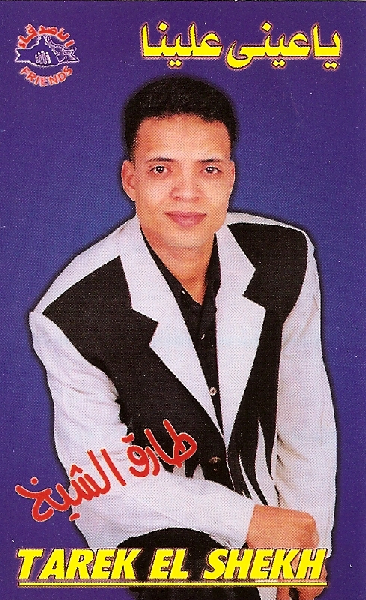
Tarek el Shekh
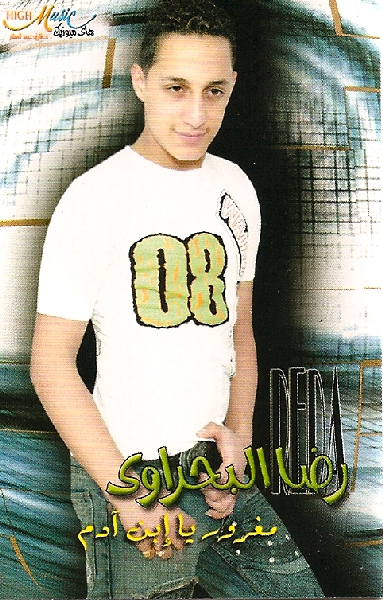
Reda al BaHrawee
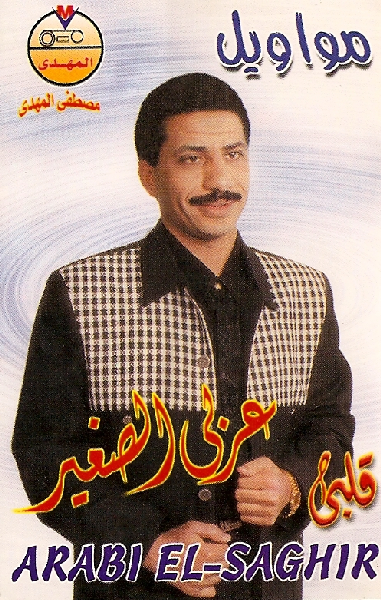
Arabi el Saghir
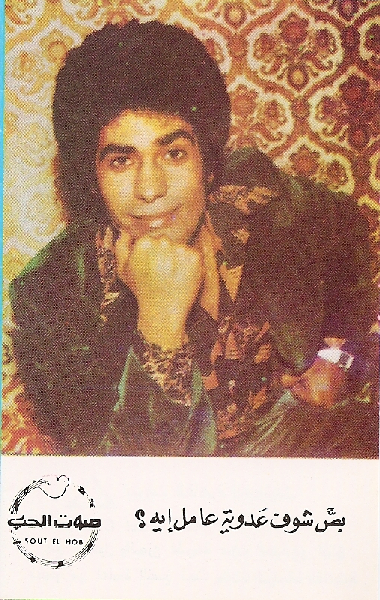
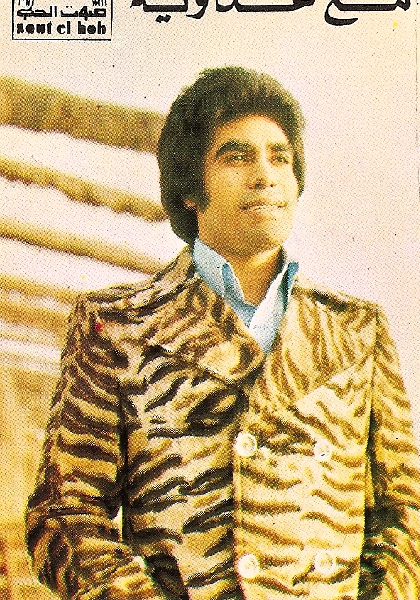
Ahmed Adaweya
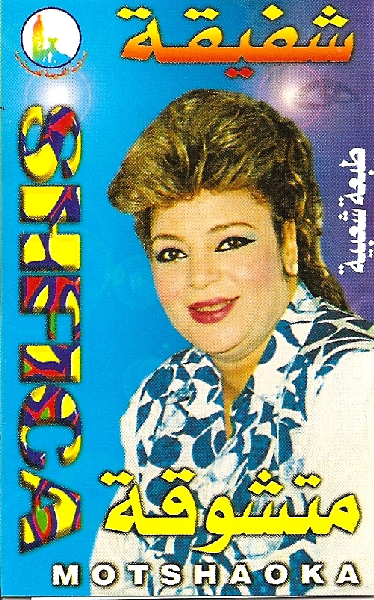
Shafika
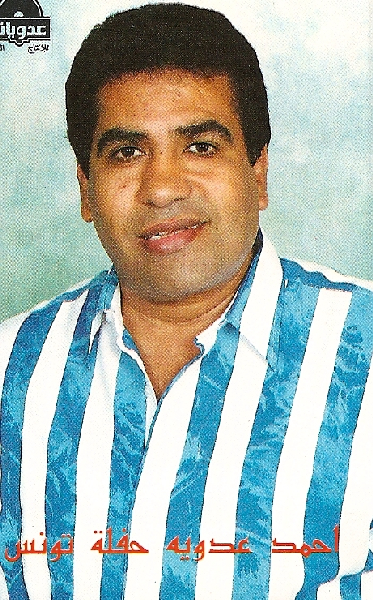
Ahmed Adaweya
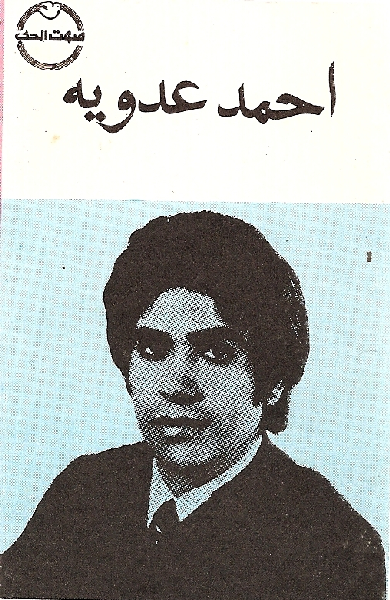
Ahmed Adaweya

Ramadan al Brins
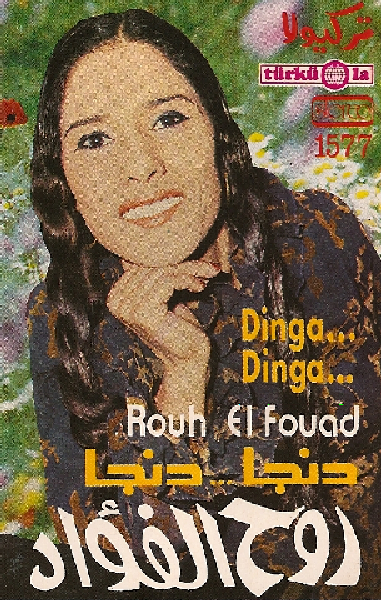
Rouh el Fouad
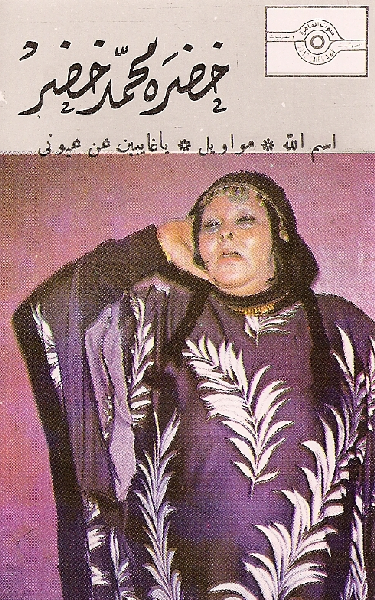
Khadra Mohamed Khadra
In 2009 Amina Goodyear and Debbie Smith gave workshops on Shaabi. We called it Keda? Keda Ho! (Like this? Like this!)
What is Shaabi?
As a word, Shaabi has multiple meanings in Arabic: “folk”,
“popular (of the people).”
As a musical form, Shaabi is the voice of the street, an urban
expression full of feeling, double entendres, and social commentary.
As a dance, Shaabi reflects a true and authentic expression of
the Egyptian people and their humor and playfulness..
We presented an in-depth look at Shaabi music and its place in Egyptian culture- from a historical, social and artistic perspective. Through looking at the great Shaabi singers of the past and present, we explored dimensions of class, neighborhood, and urban life unique to Cairo, and the movements you can use to bring the spirit of Egyptian Shaabi music to your dance.
I would like to share some of this information with you...Amina
The History of Shaabi Music ©
by Amina Goodyear
In the 1970's after the introduction and popularization of cassette tape recorders and their accompanying boom boxes, musicians and singers all over the world were able to sidestep the corporate world and self-produce and self-promote. There were several movements throughout the world that seemed to simultaneously create music in the genre called "cassette culture". Most notably this type of music was evident in England and the U.S. with punk music, in Jamaica with Reggae, in Algeria with Rai and in Egypt with Shaabi music. The literal origin of the word Shaabi (Sha’bi) in Egyptian Arabic is "of the common people". Here we will refer to it as music created by working class people, mainly of the younger generation.
Gamal Abdel Nasser, Egypt's president who gave Egypt back to the Egyptians died in 1970 and some of his nationalism died too.The policies of the government that followed opened the doors to the West. The working class people (Shaabi) with their rural roots were finally able to enjoy a little economic relief. Thanks to the newly oil rich Gulf Arabs hiring Egyptians and thanks to their tourism in Egypt, money flowed enough to make owning cassette players and boom boxes a staple in their homes. But in the 1970's Egypt also lost three of it's beloved singers - Farid al Atrache, Om Kalthoum and Abdel Halim Hafez. All this marked the end of Egypt's Golden Age and the era of pure love, unattainable love and repressed sexuality. It was time to move from fantasy and dreams to reality. The people needed to move on and were ready to declare war against the monied society and its conservative codes, the government, politics, corruption and just the general state of affairs in their miserable lives. True, there was a little more money flowing, but only enough to let them know that there really wasn't enough. With the readily available cassettes - commercially made, homemade and bootlegged - the Shaabi people were able to sustain a voice and it was no longer ruled by that Egyptian monopoly, RCA, the so-called " voice of the people".
The first well known Shaabi singer is undeniably Ahmed Adaweya. I like to call him the godfather of Shaabi music. He used his voice to sing songs of protest to various social injustices and veiled commentaries on the government and its policies and the cassettes he made spread the word. He was born in the mid 1940's in a working class (Shaabi) "hood" (harah) in the outskirts of Maadi, a district in the southern part of Cairo. He eventually moved to Mohamed Ali Street (also known as Shariaa al Fann -Street of the Artists) where he changed careers and gave up plumbing to work as a waiter in a café. There he was able to present folk songs and his popular mawaweel (pl. of mawwal or vocal improvisations, usually heart-wrenching). By the end of the 1960’s he went from singing at mulids (religious festivals) and street weddings to high-class weddings in hotels. In the early 1970s he was singing regularly in the clubs on Shariaa al Haram (Pyramids Road) and his popularity and his new sound sold millions of cassettes. With his baladi roots, his shisha smokers' raspy voice, his memorable mawal and sometimes satirical lyrics, his combination of modern and traditional instruments, and just his general gruffness and way of life, he provided a template for the Shaabi singers who followed him.
Shaabi music is the sound and voice of the working class people. Many of these people are first and second generation from the countryside and they brought their baladi sounds with them to the city. They combined the Egyptian folk music and traditional instruments with the urban classic or art music and modern western instruments. Although it may seem that there is disregard for the traditional and cultural in their songs, quite the opposite is true. Their music is actually more versed in the Egyptian vernacular than the music and songs of the upper class modernized and westernized Egyptians. (Our beloved Mohamed Abdel Wahab's music was quite influenced by European and Russian composers. His music probably gave permission for others to follow along the same vein. Some of Farid al Atrache's songs are good examples.)
The singer's voice, besides being emotional almost to the point of tears, quite often has a low, raw and raspy almost gruff edge. The singer may begin many of the songs with a plaintive mawal. This vocal improvisation like much of the mawaweel of traditional Egyptian songs may sing of love, but often will be couched with references of disdain for the government, corruption and the establishment and other social issues.The mawal usually does not have a rhythm, but it may be accompanied or answered by the traditional nai, or the modern accordion, saxophone or keyboard.The mawal tells of the beliefs and feelings of the singer and sets the emotional stage for the actual song. Ahmed Adaweya, Hasan al Asmar and Shaaban were known for their mawaweel (pl) and many times their mawal would be the song. Following the mawal and preceding the actual song and melody is usually a fast upbeat tempo (such as maqsoum saeria- double time maqsoum) played by the tabla.The song, short and fast, can sometimes be shorter than the mawal and can broach many subjects. The lyrics are usually simple, contain slang or street talk and may complain of many things such as the use or non-use of drugs and alcohol, poverty, work and money, love and marriage, food (which is usually used as a metaphor for sex) and just the general hopelessness of living and life in general. More recently the state of economy has brought about even more depression and many of the songs also appeal to a greater power.
These songs, used as a popular form of resistance, using humor, irreverence and street talk to mask the true meanings, are often censored in the governmental supported media. Through the cassette culture cottage industry, they are passed on from person to kiosk, to taxi drivers and microbuses, and on to the general popular public. More recently Shaabi styled artists such as Hakim and Saad have been "discovered" and their music, although sometimes censored locally, has nevertheless been promoted worlwide as the music of the youth "in-crowd" or the "hood" - music like hip hop and reggae - slightly bad, so it's really in.The cassettes are a cheap and easy way to distribute the music. Even the stars such as Hakim and Saad don't seem to object to their music being bootlegged because the sales and thus, their popularity, can eventually lead to big gigs in large venues - and this translates to big money.
Another newer method of passing on the Shaabi music has been through the more modern tools that are virtually accessible to all. This is the mobile phone and the internet. In the late 1900's the saying was "telephone, telegraph, tell an Arab". Now in the 21st century that funny little joke is a reality as the mobile and the internet indeed quickly spread the lyrical word.
Also there is a slew of new Shaabi musicians using the nomenclature DJ Mulid and DJ Sufi. They hang out at mulids (religious festivals) and remix songs for the youth to dance to. Many of these Shaabi songs latch onto the rising conservatism of the times.The songs of love and money and the lack of both, seem to focus more on social injustice, poverty and giving up drugs and alcohol.The melodies and remixes can be hypnotic and trance-like (as in a dhikr -repetitious invocations) and often invoke the aid of a higher being.This new music is quite popular in Shaabi weddings as the repetitive rhythms and lyrics pull the audience in and are quite danceable.
This modern urban musical style with its rural roots combines a very eclectic range of instruments from the most classic and traditional such as the riq, cymbals, large and small (tura and sagat), the nai and the kanoun to the western violins, accordion, saxophone, trumpet, electric keyboard and now the digital sounds of the computer.
Since the turn of the 20th century Mohamed Ali Street was the main Shaabi center of these urbanized baladi artists - artists who had their roots in the country. Today, thanks or no thanks to the gentrification of the historic parts of Cairo and the economic neccessities to move to the outskirts of Cairo such as to Feisal Street and Pyramids Road (southeast towards the pyramids and Giza), the new main Shaabi center for the baladi artists - the musicians and singers - is the mobile and the internet. The Shaabi neighborhoods are now linked - almost as in a virtual Shaabi center.
****
TIME LINE
(Singers and Cassette information – approximate dates)
1952 End of Monarchy (King Farouk) in Egypt
by military coup.Gamal Abdel Nassser becomes president of the new republic.“Egypt
for Egyptians!” finally.
1956 Suez Crisis (with British). Suez Canal
nationalized.
1960'sAswan High Dam – Nubians relocated.
Many moved to Cairo
1967 Arab/Israeli war. Israel’s army
defeats combined Arab forces and occupies West Bank, Sinai, Golan Heights.
1970 Nasser dies, succeeded by Sadat –
Sadat is pro-west
1971 Ahmed Adaweya
1973 Release of "Zahma Dunya Zahma"
by Ahmed Adaweya in cassette format. October War by Egypt and Syria against
Israel.
1974 Kat Kut cassettes - Farid al Atrache
dies
1975 Om Kalsoum dies
1977 Abdel Halim Hafez dies - Belly Dance
clubs attacked in Cairo
1979 Egypt and Israel sign peace treaty.
Egypt banned from the Arab League
1980’s Shaaban Abdel Rehim cassettes
1981 Sadat is assassinated and succeeded
by Hosni Mubarak
1984 Belly Dance clubs torched
1985 Hasan Al Asmar, Abdel Basit Hamouda
cassettes
1988 Hamdi Batshan cassette
1990 Yallah! Cassette with Shaaban Abdel
Rehim, Samy Aly, Hasan Al Asmar. (this is the mainstream of older "cottage
industry" cassettes) - Hakim cassettes
1991 Mohamed Abdel Wahab dies
2001 DJ Mulid Shaabi music Shaaban Abdel
Rehim makes Shaabi history with "Ana Bakra Israel"
2004 Saad al Soghayar
2005 Digital cassette "Immortal Records"
2008 DJ computer mixes on cassettes includes
mulid carnival sounds DJ compilations available free on internet - Film
"Cabaret"with Mahmoud El Leithy DJ mulid song
2009 Film "El Farah" with
Abdel Baset Hamouda's "Ana Mush Arefni" and Mahmoud el Hosseny
DJ mulid song
****
Amina writes for The Belly Dance Chronicles about Shaabi music
From the Back Alleys of Cairo into the Clouds:The Changing Face of Shaabi Music
by Amina Goodyear ©
Several years ago before my friend Debbie Smith moved to Cairo, we
would meet once a week for a self-imposed language lab. For about
3 years we had had an on-going work/study session every Monday evening.
We always began our sessions with Debbie asking in Egyptian Arabic
"Akbarik eh?" or "What's new"? And after responding
and bumbling my way through remedial qameyya (Egyptian colloquial
dialect), our language lab conversations would begin.
Our conversations always seemed to move from trying to speak Arabic
into listening to music and songs and using our Arabic dictionaries
as an aid in translating the songs. Occasionally we would call upon
an Arabic speaking friend for help in identifying a word when we were
really stumped. We both really looked forward to these sessions that
allowed us to discuss and research what we liked most, which were
the cultural relationships of Egyptian music and songs with its people.
We especially liked, listened to and analyzed Shaabi music. The literal
origin of the word Shaabi (Sha’bi) in Egyptian Arabic is "of
the common people or the popular class". We related to the music
of the popular classes with which we felt a relationship. It was fun,
accessible, intriguing and traditional, though different from what
most people knew as "traditional" because of these "outsider"
or different lyrics.
In the '70's I started collecting Shaabi cassettes by Ahmed Adaweya
and a few others and later starting in the '80's after visiting Egypt
a few times, I amassed even more cassettes and CDs' by artists not
known in the U.S. In the last ten years, Debbie, in turn, started
visiting Egypt frequently and eventually married and moved there.
She always brought back new music by even more "unknown to us"
singers in the form of cassettes and CDs. The CDs were both commercially
produced and also special made-to-order CDs burned from music shops
and kiosks.
In our weekly "lab" sessions we had such fun analyzing and
comparing Shaabi songs over this forty-year span of Shaabi music.
As we compared, analyzed and made notes, we made many earth-shattering
(to us) observations and also had many epiphanies based on our comparisons
and discoveries. We decided that we needed to share our epiphanies
with whomever. Who these people were, we really didn't know. But we
wanted to share. So we decided to get serious and compile all our
information for others to learn from, including the evolution and
progression of Shaabi music and song.
Finally, equipped with media, hard facts, and a little of our own
conjecture, in February of 2009 we presented the first of our Shaabi
workshop series which we called "Keda? Keda Ho! An in-depth look
at Shaabi music and its place in Egyptian culture- from a historical,
social and artistic perspective."
Using the great Shaabi singers of the past and present, we explored
various dimensions of class, neighborhood, and urban life unique to
Cairo, and the movements that were the spirit of Egypt. Our first
workshop was two days and evenings long and was divided into four
parts:
The first day addressed the history where we discussed in depth the
economics, the discrimination and life in the hara (the ghetto or
barrio) and the backgrounds and songs of Ahmed Adaweya, Hakim, Saad
al Soghayer and a few others. In this discussion we analyzed what
made Shaabi authentically Shaabi and how Hakim fit in the picture
as being the son of a mayor, he really did not have Shaabi roots.
In this section, we also talked about the "cassette culture"
which began with the cottage industry of self-producing the music
and how and why this music grew in popularity despite not being played
on public radio or TV. This brought us to analyzing the music, its
structure, instrumentation and lyrics, including the words - both
in Arabic and in English translations and the all-important mawal
(the poetic free-form plaintive mourning that could stand alone as
a song or be the prelude to an up-tempo song).
The evening of the first day we had a video party and I showed rare
clips from movies, concerts, music clips and video I filmed "in
the field" in Egypt. We showed sights, scenes, gestures, clothing
and personalities that captured the aspect of Shaabi urban life in
Cairo.
The second day was devoted to dancing. Since we do not believe that
Shaabi is a dance, but rather is a dance style, we chose not to teach
it in the traditional Western manner of teaching dance. Our approach
to Shaabi song and dance was showing authentic expression through
understanding movement, rather than teaching choreography or sets
of steps. We taught mostly in the Egyptian "follow the bouncing
butt" methodology with explanations and translations given for
the gestures used.
Later in the evening we had a show in a restaurant. Since the Arabic
musicians were not Egyptian and also not Shaabi, we chose to use Shaabi
recorded music to drive our point home. Later when the musicians came
on stage for the workshop's dancer showcase, we danced again to demonstrate
the difference between Shaabi and Oriental or Tarab.
To our surprise, this workshop was sold out and we were convinced
to do a follow-up workshop later the same year (October). In the next
workshop, we chose to continue our analyses using other artists and
songs as examples of how this style of music continues to evolve and
change - almost daily - based on the economy, the religion, the social
pressures and even the politics of the moment. The key to Shaabi music
and song seems to be that it is continually changing with history
and forming the events that become history.
After our first two workshops, Debbie moved to Egypt. But did that
stop our workshops? Actually not. Now she has excuses to come visit
me in San Francisco in order for us to personally exchange ideas and
to hold more workshops. Her move, however, did stop our Monday evening
sessions. Because she now lives and works in Egypt, she has become
fluent in Egyptian Arabic. And me? I now have an Egyptian Arabic tutor,
Ayman, who meets with me once a week. He doesn't really like Shaabi
music but admits that the songs give him an insight to new trends
and even new words so I still get to study and analyze my songs. Debbie
and I now have to discuss our ideas on our iPhones. It may be a bit
awkward at times, especially because of the time difference, but now
I can ask her to immediately research, interview and/or buy a piece
of music or a movie or other paraphernalia and therefore gather new
and cutting edge material for our personal knowledge, collections
or future workshops.
One thing I have noticed from the flash drives, DVDs and compressed
CDs I've gotten from Egypt in the past few years and especially since
the January 25 revolution, is that the music, instrumentation and
lyrics are changing faster than the speed of light. What I first thought
was a unique concept borrowed from the West - much new Shaabi music
uses rap, hip hop and electronic manipulations - now seems to be the
norm. Shaabi music is going in so many different directions; especially
with its new forms of "DJ" music that I can barely keep
up with what is Shaabi music.
Following is a short summary of how I see Shaabi music :
As I said before, in the dictionary, Shaabi is "of the common
people or the popular class". That to me means the poor, the
working class, the laborers, the blue-collar workers...those less
fortunate people who may live in poor neighborhoods or even in squalor
and exist hand-to-mouth, juggling money to make ends meet and often-times
resorting to untraditional, unethical, unlawful methods to get by
in order to forget or alleviate stress and pain.
Before I actually met Shaabi artist Ahmed Adaweya, I knew him in the
1970's only through his music cassettes and I fell in love with his
song "Salametha Om Hassan". This song is about Salametha,
Hassan's mother, who was stricken by the Evil Eye, subsequently became
sick and wanted to be treated her way, the old way, by holding a Zar
to heal herself. Her son wanted her to be treated by more modern methods.
“Salametha Om Hassan” was a social commentary on the state
of the Egyptian nation and to Egypt’s 1967 disastrous defeat
by the Israelis and the general depressed mood of the nation. He wished
Om Hassan (Egypt) a speedy recovery and hoped that the affliction
from the Evil Eye that had struck Hassan (a.k.a. Gamal Abdel Nasser,
the Egyptian soldier) would be cured.
Aside from liking the lyrics in "Salametha Om Hassan" that
discussed a Zar (which led to fun and wild dances) Adaweya's songs
were especially noteworthy for having a great percussion section,
a new sound - horns - and a voice that had a sound unlike other singers.
It was raw, unrefined, gruff, alive and melancholy. His mawaweel (pl.
of mawal) were tear-wrenchingly moving.
Adaweya was the first modern singer I knew of to use lyrics as a metaphor
for a political or social reason. I later learned of Sayed Darwish
(1892-1923) who made veiled references to social and political problems
as far back as the early 1900's. One big difference though was that
Sayed Darwish was expressing discontent with Egypt's colonists, the
British, and Adaweya was expressing discontent with his own government,
the Egyptians. This was a big thing. Before Adaweya's songs, most
Egyptian songs were about love. Adaweya dared to mock or confront
his dissatisfaction with the government and the public policy in his
cassettes. As a result, he didn't get any public airtime. He had to
resort to underground "cassette culture" distribution. And
this culture was widespread throughout Egypt and strong. In the U.S.,
he would have received "Platinum" albums, and "Grammies"
for his popularity and wide distribution. Through his music and his
place in the history of this music, Ahmed Adaweya became "The
Godfather of Shaabi". Although Adaweya was not allowed airtime
in government-regulated radio, he was the star of 27 Egyptian films.
Adaweya used a blend of traditional instruments and modern instruments
and sounds creating new urban sounds from his rural roots. He used
classic and traditional instruments such as the nai, violin, kanun,
oud, riq, large cymbals and tabla. Besides adding and making the org
(keyboard) and accordion part of his traditional Egyptian sound, he
followed Ali Hassan Kuban(1929-2001) the Nubian wedding singer's lead
and introduced the horns, the saxophone and the trumpet, to Shaabi
music. Blending the old and new instruments is very typical of the
Shaabi sound.
Ahmed Adaweya, known for his lifestyle, scandals, notoriety and his
songs, is particularly known for his mawaweel. All this is typical
Shaabi including his hoarse raspy voice probably as a result of smoking
too much shisha. His mawaweel laments poetically, of love, of sex,
of social conditions.
Most Shaabi singers of this next decade, the '80's, seemed to have
these same qualities and themes. I'm thinking in particular of Hasan
al Asmar's (1959-2011) song "Kitab Hayati Kitab" (The Book
of my Life...as the paper is grief and the ink is made of tears),
and Shabaan Abdel Rehim singing "Akbar Ahram, Akha Saah"
(The names of newspapers...What's going on in the news. Shouldn't
we care about life?) as found in the now legendary and classic Shaabi
cassette, "Yalla".
Adaweya's mawaweel also inspired other Shaabi artists such as Hamdi
Batchan who sang "El Hikaya" (What's the Story? about a
dirty old man leering at a pretty girl) to complain of the same and
more, on issues about the "nas" (gossiping or meddling people),
their poverty, their shame, and the pity of being down and out. The
songs in this time period (1980's through the 90's) and these singers
concerned themselves with money, lust and love.
Mahmoud el Husseini and Abdel Basit Hamouda are famous Shaabi singers
who starred in a movie called "El Farah" (2009) and sang
of the moral decay and desperation of Egyptian society at that time.
And while Abdel Basit ("Ana Mush Arefni" I Don't Know Myself)
and Mahmoud el Husseiny ("El Abed wel Shitaan" The Slave
and the Devil) were singing of the crimes, the devil, going to hell
and repenting, desperation and the resulting sense of the overindulgences,
Mahmoud el Leithy , a friend of Saad el Soghayer's, found his calling
at Mulids (religious festivals sometimes with a carnival feel). His
particularly beautiful voice suited his style which is known as Shaabi
Sufi. Sufi is the spiritual, mystical dimension of Islam sometimes
incorporating the Zikr, meaning remembrance, whereby the participants
may chant and/or sway repetitively in order to achieve a remembrance
to Allah). When Mahmoud el Leithy sang, his mawaweel would often-times
reign over the actual song.
The overall effect of these Shaabi singers depicts a musical layering of the complexities of Egyptian life.The earlier Shaabi music from the '70's to the late '90's was also known as City Beledy or Urban Beledy. Then in this century, from about 2000 on to now, the singers were starting to be of a different generation and not so closely connected to their rural roots. The Shaabi music started changing with access to computers, hand held mobile devices and the Internet. Shaabi singers and DJs started showing up at Mulids and would "cover" traditional, classic and religious songs and would also sing songs preaching "repentance".
This increasingly influential group of performers also took their
music to weddings where they called this specific form of music DJ
Mulid, DJ Sufi and even DJ Karkar. This type of music has many different
names and the form is often identical to their name. "Karkar
" is the name of a movie that features comedian Mohamed Saad
who plays multiple ridiculous characters in which DJ Mulid type music
is used. Some DJs calling their music DJ Karkar show their irreverence
to the spiritual nature of the Mulid while other DJs and Shaabi singers
may praise Allah or preach about the sins of wasting their lives in
a society whose very roots are dead. A society that knows that if
you do not join the ranks of the corrupt, you will die of starvation.
As I mentioned above, Shaabi music is traveling in so many different
directions that I can barely keep up with its various forms. I also
wonder, with all its new permutations, where this Shaabi music is
going? It doesn't seem to fit all the old standards of Shaabi that
I knew and loved from the twentieth century. With very few exceptions,
it truly has evolved from a singer with a good voice using a blend
of Beledy and modern instrumentation and rhythms to a DJ "singing
or rapping" to electronic sounds. And among the new sounds emerged
DJ Mulid, DJ Sufi, ElectroShaabi, TechnoShaabi and most recently "Mahraganat"
(festival music), which has taken on a self-appointed "global"
power. Although the singing and instrumentation are radically changing
and different, there is a common denominator. And that is the fact
that they all seem to deliver a message. The message can be a complaint,
preaching morality, a state of being or it could just be inane, but
regardless, it is always culturally specific and/or socially relevant.
Where the DJ's at first "covered" old Shaabi and even traditional
(such as Abdel Halim and Warda) and classic (think Om Kalthoum) songs,
they electronically manipulated the voices and the music, in an Electro
Shaabi manner. This may be electronic and experimental in sound, but
is still "Sufi" or "Mulid" in feeling.
The melodies and remixes are hypnotic and trance-like (as in a Zikr
which involves repetitious swaying and invocations) and are emotionally
healing as they invoke the aid of a higher being. This new music,
DJ Mulid, DJ Sufi and Mahraganat is quite popular in Shaabi weddings
as the repetitive rhythms and computerized and manipulated lyrics
call the audience in a cathartic manner. It is powerful enough to
establish a classic African "call and response" evocative
interplay between music and audience.
Yes, the songs are danceable as are the songs at a rave here in the
West. So, then, how would we Westerners dance to this music? If at
a Hafla, we would just move, jump or sway the same as we would in
a dance hall here. But how would we dance to it in a performance situation?
First, we would need to take the time to understand what the words
are about, since much of this music speaks out for religion, is about
taking drugs or about social injustices, Is it appropriate to perform
in a concert or in a dance festival? Perhaps certain songs could be
used but not all. Perhaps it could be used in a theatrical vignette
setting as a depiction of this style of dance.
In Egypt, most of these songs are danced by young men at weddings
and Mulids. The men are the ones who are present and celebrating.
The women and girls are usually not visible.
Today this music is Shaabi in origin. It is still the music of the
popular lower classes. But Shaabi music is continually changing and
in Egypt today, this Mahraganat music is being introduced to the other
more affluent classes in other venues such as the theater. Mahraganat
music seems to be actively embraced by traditionally non-Shaabi audiences
who seem to enjoy listening to it and are attempting to dance to it.
This is Mahraganat's chief role in this regard over other Shaabi forms.
It is incomprehensible and is viewed less as a threat and more as
a trend. So, by reaching out to the other classes who seem to like
it and want to dance to it, is this street festival Mahraganat music
still exclusively Shaabi music? I don't think so.
One DJ, named Haha used a familiar slogan and tune from the January
25 revolution called what "the people want". In this case,
"what the people want" was DJ Haha using sub-cultural rapping
and hypno-electronic smash-up rave-like "music" as a tool
to reach "the people" and in many cases, to mock them. After
the revolution, DJ Haha and other DJs did revel in the realization
that there would be no more censorship.
"The people want something new
The people want five pounds' phone credit
The people want to topple the regime
But the people are so damn tired"
This celebration of no more censorship however, was however very short-lived
as government officials are now applying censorship with a wrath in
keeping with the new governmental quasi-religious policies. The latest
(heart) breaking news as of July 2012 (since the election of Egypt's
Muslim Brotherhood party President) is the fact that censorship is
charging forward. "The Egyptian Radio and Televlsion has begun
to cut scenes from Egyptian movies made in the last 50 years that
contain what it considers inappropriate acts, such as kissing and
belly dancing." (Al Shorfa, April 16, 2012) And this will soon
also include inappropriate song lyrics and speech.
I asked Raqia Hassan about this trend in music and she really didn't
have much to say about it except that we seemed to agree that it appeared
to be computer driven noise with people inserting stupid words through
computer manipulation.
I was very interested and fortunate to be able to attend her workshop
in the San Francisco Bay Area this July 2012. Since Raqia Hassan is
the most powerful and influential dance teacher in the world by hosting
the largest international dance festivals (Ahlan wa Sahlan) and by
teaching, training, coaching and choreographing for some of the most
beloved and sought after Egyptian born and International dance stars,
it was great to hear her thoughts on the traditions of Shaabi music
and song.
She introduced each class with an explanation of Shaabi and also differentiated
between plain Shaabi dance and Street Shaabi. In her Street Shaabi
she was careful and deliberate in explaining that this is a style
of dance that is done by the common people and that although she was
teaching a song with choreography, mannerisms and combinations, that
she really only wanted people to leave the class understanding the
essence of the style. This style she explained was very natural in
technique and danced with a strong macho or macha feeling depending
on whether it was done by a male or female. Her explanation of the
regular Shaabi song was that it entailed a bit more stylization for
the stage. In both the Street Shaabi and the Shaabi styles, she stressed
the naturalness of the movements almost equating and eluding to the
fact that its roots were very close to Ghawazee style dance. When
she demonstrated and explained this, she seemed to be making reference
to the Sonbati Ghawazee of the Delta region of Egypt. This is the
style that is similar to the dance style of Fatma Akef, Dandash and
Aida Nour and not to the style of the Banat Mazen Ghawazee of Luxor.
Since I worked and studied with Fatma Akef when I worked at the Bagdad
in San Francisco, I felt very much at home with Raqia's Shaabi and
Street Shaabi dancing. She said that this style of dancing is new
to Egypt. I don't really believe that it's new to Egypt, but maybe
it's new to the stage. She used music by Saad el Soghayer that came
from the soundtrack (with singers Saad el Soghayer and Mahmoud el
Leithy) of the movie "Sharia al Haram" released late 2011.
The music is new but is very reminiscent of 1980's Shaabi songs. In
fact the melodies of two of the songs could almost be the songs two
Shaabi singers from the '80's, Sami Aly ("Elli Shatr Enhaa Tgannen")
and Hamdi Batshaan ("El Hikaya") sang. but with different
words. I was pleased to see that Raqia chose to use familiar Shaabi
tunes in her workshops and that she chose to ignore the Mahraganat
DJ music that also claims to be Shaabi.
Since many believe that Raqia's teaching and choreographies epitomize
the latest, the greatest and the truest of Egyptian dance, a true
layering effect of the complexities of Egyptian life, perhaps the
fact that she chooses to ignore the Electro DJ styles of music means
that at least from a dancer's point of view, Shaabi music will return
to its original and lovable '70's and '80's form and structure. Some
things of great cultural value cannot simply be brushed aside. They
always will be alive.
Below are some Shaabi singers and their songs - Some songs are complete; others will give some words and the general jist.
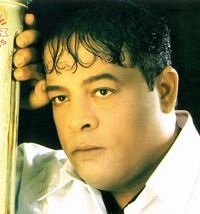
Abdel Basit Hamouda
This wedding singer was the first to make live recordings and sell the cassettes.
From the movie al farah - most of the cast and the singers are Shaabi and not necessarily actors. In this case art imitates life. "Under the pretense of having a wedding, Zaynhom is planning to collect "el nu'taa" (the money) from everyone in his shaabi neighborhood so he can buy a bus and start a new business. He uses his mother's only savings to finance the wedding, hoping for a big return, as is the custom at such events. Through the setting of a common neighborhood and the wedding, this movie explores many different issues in Egyptian society, from wedding customs, religious extremism, drugs, and crime, to the impact of the financial crisis on ordinary people. The many characters display tradition, contradiction, and the paradox of daily life." -Description from maqam.com
ana mush arefni (translated by Amina Goodyear and Sharif Soleiman)
ana mush arefni
I don't know myself
ana kunti min
I could have been something (I had hopes)
ana mush ana
I'm not myself
la dee malameHa
This is not my features
we la shakly shakly
And my face is not my face
we la da ...ana
And this is not me
abuS li roHi faga - la-etni
I look to my soul suddenly - I found myself
la-et kabert faga h-kabert
Suddenly I found myself old - old
ta'abet min al mufagah we nezlet dama'eti
I got tired from the surprise and my tears came down
oolili eh ya maraet
Tell me what, oh my mirror
tkunshi
I couldn't be that
tekunshi dee nehaitee
Could this be my end (I couldn't be that)
we akheri 'eseti
could this be the end of my story
ya duny tafity ya shamaa
Oh world, you have put out my candle
ya nass katartua damae katarti
People,you've made more tears (cry more)
wel, aamri raH hadra
And the life went to waste (roar)
katabtil ah balemy
I wrote about it with my pen
kassartu see 'alemy
You (all) broke my pen (lead of the pencil)
we bardu be'ool 'adra
And still I'm saying fate
Hazeen min soghri senee
I'm sad from my youthful years
al-a ya aini
And who is going to care (my eyes) )(whose fault is it?)
we wekadhani al khatawi
And the sins took me
la sikh tayahat mini
To a way that's lost for me (that wil always make me lost)
ya leil al gerHily
Hey night, hey wound, you who is with me
maaya zai Deli
Like my shadow
ma ansa weHdety
And I can't forget my loneliness
sar'atil 'amar kulu
you have stolen all my life (years)
khalaS ma be'ash faDalee
That's it, there is nothing left remaining (left for me)
gheir gehHy we damaeti
Except for my wounds and my tears
gereyH we da mesh beyedi
Wounded and out of my control (this is not my hand)
makhadtesh bes bade
I didn't take my share
zeraat ya nass 'eewdee
I planted (oh people) my shackles
ganeit al showk le waHdi
And thorns came out alone (and I harvested the thorns alone)
Ya Basha by Abdel Basit Hamouda
A Shaabi political statement that is countered by Egypt's last living pharoah.
ya basha (translated by Amina Goodyear
and Sharif Soleiman)
(can be a respectful term of endearment to a peer - ya basha, ya
kabtan)
ahu da, hua da
This is it, he's the one You're beautiful (strawberry), ya basha
It looks like ya basha
Ask who's the better looking one - jealous of him
All the girls are beautiful, one my Habibi and oh my aini (eye,
loved one)
I've never seen that you have...
With my hands on my cheek (eid alaHat) I'm waiting the whole
day (kulilinaHar)
Ya akhuya, ya aami ya khali
oh brother, oh uncle on mother's side, oh uncle on father's side
I wait for him to return
and cross the stree so I can see him again
he's the light - from his beauty
oh so very beautiful, you're delicious, oh my soul
you're like a honey molasses stick (like a sucker)
so so cute
In the morning I see his beauty with its greatness
and the ground shakes from him and from its beauty
oh so beautiful oh so succulent.
****

Ahmed Adaweya
Leading a tough life is what gave
him the emotions and feelings to create his music.
See
Amina's Ahmed Adaweya article on gildedserpent
zaHma ya dunya zaHma translatedby
Debbie Smith
zaHma ya dunya zaHma
crowded, the world is crowded
zaHma w tahou al Habayeb
crowded, and the lovers are lost
zaHma wala aadshi raHma
crowded, and mercy never comes
moulid w saHbou ghayeb
a moulid (prophet or saint's day festival) without a leader
agy min hena (zaHma), arouH hena (zaHma), hena aw hena
I come from here, I go there, here and there
zaHma ya dunya zaHma
crowded, the world is crowded
zahma w ana rayaHlou
crowded and I am going to her
w ana fi wust al zaHaam
and I am in the midst of the crowd
aayez yesmaa wa 'olou
she wants to hear me and I tell her
ma byewsalshi el kalaam
but the words don't reach her (arrive)
wa bayni wa baynou maaaad
and we have an appointment with each other
wa HayrouH el maaaad
we're going to miss our appointment
agy min hena (zaHma), arouH hena (zaHma), hena aw hena (zaHma)
I come from here, I go there, here and there
zaHma w maataani
crowded, and it's cutting me off
wa inn roHti w mala'etoush
and if you go and do not find him there
akhaf arouHlo tani
I'll be scared to go to her again
fi maaadi, ma'el'ahoush
on time for my appointment and not find her there
tseer el nass kteer
the people will become so many
wa ana aayez arkab wa aTeer
and I'll want to ride and fly
kulu aala kulu (translated by Amina
Goodyear and Sharif Soleiman)
Topsy Turvy – Everything on top of
lama shufu aala
When you see him, tell him
we hua fakirna eh
What does he think we are, does he look down on us?
mish malyeen ainak eh
We don’t fill your eyes, we’re not good enough for you?
ruh ‘ul hassad eh
Go tell him what happened
marra wela barra meen
Whenever an done time and who is outside
law il da hilhabat arefna meen
And if the door is making knocking noises we’ll know who it is
da ha maalimeen
After all, we’re bosses and we know what’s up, we’re
no chumps
alby hua mish masra li tamseelak
My heart , it is not a stage for your acting
You can’t play with me. I’m not a nobody.
We know what’s up
sittu bes basbousa translated by Shadia
Mohtady
situ bas bisittloo basbousa
bi samen we sokar wel asal
asel we kaseb ya hosa Atel we nayem fil asal
we situ bas Ba situ bas
situ bas Ba situ bas Busa bi saamen
we sokar wel asal - Setu
His grandmother looked up to whip up a basbousa
Made with butter, sugar & honey.
we setum bas bisalu We mamam sa seyalu
setum bas bisalu
a wel mamtu sa eeyalu
nayem wala ala baluu ala
ayeza ishtagal
While his grandmother is feeding him Basbousa,
His mom is quenching his thirst.
And all he wants to do is sleep and not look for work.
ingigha ya nunun ingigha
ya arda hal bidamgha
afaddee wala sabgha
trouh lau tingha sal ah ah ah
He's so spoiled he can only baby talk.
Is he a gentleman or does he have a dye on him
Maybe if we wash him we'll find out.
khulasa wemush khulasa
we selah menu gharu sasa
la fellah fi derasa
walai yeseel fi aamal
Purity at its best.
And all you can get is a bullet.
He's not good in school or any job.
Basically he's just a bum
Who eats basbousa.
meet foll translatedby Shadia Mohtady
meet foll - foll we ashra
One hundred jasmine and ten
yalli - gamalak nashra
Your beauty is captivating and spreading
law aaool we aaeed --we aaeed we azeed
If I say and repeat again and again
ma ikaffi lebokra ...nashra..nashra..nashra
It is not enough for tomorrow...Talk and news
gamalak da yamalak nashra...Gamalak meet foll we ashra
Your beauty is captivating...Your beauty is one hundred jasmine and
ten
shawerli..we ashar..
Flag and wave to me
we en la'etny bafakkar
If you found me thinking
matshawerli..we ashar
Flag and wave to me
we en la'etny bafakkar
If you found me thinking
yeba alak elkalam..
So you can talk
we ana addt elmaam
And I'm the same scale
ya tamam eltamam...Ya tamam eltamam
Ya ain.. ya ain.. ya ain.. Ya leila leila ya leil.. ya leil..ya leil
ana ana alby engarah
My heart was broken
min ghear habeeb yaaweeny
With no lover to treat me
ana garrabt kolli dawa
I try every medicine
ma la'aitih fayda feeh
It didn't treat me
alooly we aish dakhalak bait adwak
They said to me why you entered your enemy's house
olti habibi...feeh
I said my lover is inside
alooli we aish dakhalak bait adewak
They said to me why you entered your enemy's house
olti habibi feeh
I said my lover is inside
ya amar maktsob eamel ma'aroof
You are shy oh moon - do me a favor
da howak.. wel nabi laih ana mawsoof
Your love is my features
we ana addt elmaamYa tamam eltamam...Ya tamam eltamam Meet foll
ya foll . ..
And I'm the same scale
ya tamam eltamam...Ya tamam eltamam
Ya ain.. ya ain.. ya ain..
meet foll ya foll . ..
One hundred jasmine
ya remoosh we aouyooni
You are eyelashes and eyes
betssoon matikoon
Protect me
a'a ya agmal leila
You are the most beautiful, Leila
we ana elmagnoon
And I'm the crazy
****
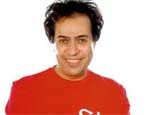
Hakim
Although he did not come from a Shaabi
background, he found his inspiration on Mohamed Ali Street.
efred translatedby Debbie Smith
ah yani mennak ah yani
oh how much you made me suffer
beteshtiki leh wa enta al gani
why do you complain if you're the convict (when you are guilty)
efred masalan, masalan yani inni khasemtak youm
suppose, for instance, for instance that I ignored you one day
manta taaebni wa mghalebni wa mnasini ennoum
for you're the one who tires me, defeat me, and makes me forget about
sleep
bakht fi hobbak mal
loving you is my bad luck
layli baadak Tal
your absence lengthens my night
hess biya, danta liya kull hagga
feel me, you're everything to me
leh beaendak leh tedhayaa kull hagga
why are you willing to lose (do you make everything lost) by your
stubbornness
efred masalan masalan yani inni khasemtak youm
suppose, for instance, for instance that I ignored you one day
manta taaebni wa mghalebni wa mnasini ennoum
for you're the one who tires me, defeat me, and makes me forget about
sleep
al kkalam yegeeb kalam
talk brings on talk
wal aazool yaamil hekaya
and the nosey person (begrudger) makes a story of nothing
la haram da al gharam
what a pity, passion
tah maaak waHtar maaaya
passion has lost it with you and become confused with me
bansa ayya kilma marra ouitehali
I (will) forget every word you've told me
wa inta bardo ayya kilma aadihali
and I know that you will let my words pass
efred masalan, masalan yani inni khasemtak youm
suppose, for instance, for instance that I ignored you one day
manta taaebni wa mghalebni wa mnasini ennoum
for you're the one who tires me, defeat me, and makes me forget about
sleep
enta ya mat'oli yah
hey you, what's the end of my suffering
aa'li tah 'albi tah
my mind (reason) was lost, my heart was lost
wa enta mish aamel hesabi
and you don't even take me into account
bel mahabba habba habba eshterini
you'll get to me (buy me) little by little with love
da enta bardo law teaaozni hatla'ini
and you'll find me if you need me
efred masalan, masalan yani inni khasemtak youm
suppose, for instance, for instance that I ignored you one day
manta taaebni wa mghalebni wa mnasini ennoum
for you're the one who tires me, defeat me, and makes me forget about
sleep
nar (translated by Amina Goodyear and
Sharif Soleiman)
fire
My heart is full of fire.
Come on, Habibi, I've become doubtful
I'll never do it again, life in fire.
I loved him
And I loved him
And I needed him
And I took him places
Made me crazy
And I'm crazy
He made me cry
And he didn't come to me
My address got lost from him
I'm running away - the fire's over
After all, we're bosses and we know what's up, we're no chumps
My heart, it is not a stage for your acting.
****

Hasan al Asmar
His mawal would make babies cry.
kitab Hayati ya ain translated by Chris
kitab Hayati ya ain ma shufta zay we kitab
the book of my life (story) there is no book such as mine
el farhi fih satrin wel baa kollou azab
its papers are grief and tragedy and its ink is made of my tears
el hebri men damaae
its ink is made of my tears
a sad book full of tragedies
he betrayed in teh past, he's a betrayer and cruel
el farh satir ghalat maktoob
when the past were forgetting, were forgetting one day
kitab ezzaman gowwah hammi
without having pity on me
hayaeesh hazin we ysebha hazin
and he took my tears and blood for granted
the page of the age melted
men eddemooa lama aaritha
I underestimated the world before
we men zaman menni khadtaha menni khadtaha
the cheek of the doctor became a habit
we men aiayda li aiyada
everyone that I went to says
ataat albe biziyada ah beziyda
instead of going to the doctor I went to "miyya"
(an ignorant woman treats with herbs)
we khadt kolle el adwiya
everyone said about my hurts
makhatehoosh fel kolliya ya ainaya
oh my world give me a lot
mayhemmikish aeblet Hayati
I got used to the sadness from the beginning
we damaa fi ayooni lilati ya Hayati
the doctor comes to me so I tell him the story
yaool salamtak adailoo
and when I ask him what's wrong with him
yekhabi demooaoo fi mandiloo aah badailoo
suffering and grieves and little by little
wadi nihayet el hadoota
with the tears of my eyes and my sadness
eddonya radhiya we mabsoota aah mabsoota
touba (translated by Amina Goodyear and
Sharif Soleiman)
touba
- never again
Missing you got me so tired
got me caught up in a vortex, whirlpool
halawa - that beauty
sha-awa - mischievous
never hurt me again
I give my heart, my life, my passion
to find her
forgetting is hard (tough) on me
nassi assi - forgotten how tough she is
ana ho (translated by Amina Goodyear and Sharif Soleiman)
ana ho
Here I am
ana ho wenta ho
Here I am, There you are
we izaman aho wenta ho
I showed you a good time (I took care of you)
amal haley tak hilaly
I made you my crescent – I respected you,
en mak alem ta di’ali
Why did you lead me on
ima sahartak layali
I showed you a good time and I had you up at night
tafeit bei eideik shumnaee
Put out the fire with your hands (your candle)
Omri da alby da maak ra wayak
I spend my life to you, my heart was lost with you
****
Riko
Shaabi singer who made it big acting in Egypt's blockbuster formula movies - a comedy, trashy singer and a bellydancer.
Al Khokha (from the movie aalaya El Tarab Bel Talatah )
The prune is running after the prune and wants the peach
And the banana is getting the banana and wants the banana
Everyday she throws one mango to me
When I am about to eat it, I find that it is a guava
Dates, oh dates, nobody has to go dating
I am off today, I need a drum and a tambourine
Give me more
Dates, oh dates, nobody has to go dating
I am a peach, give me a banana
I will make you a cocktail
My grapes are ripe, my rod is bent
Look at her figure
When you see me you get calmer
If you say no
I will slap you
Let us speak calmly,
You banana with yogurt, let us?
Feel, feel everything and look everywhere
We speak very truly, we don't try to lie
Let's throw everything, and cheers everybody
Dates, oh dates, nobody has to go dating
Everyday she throws one mango to me,
When I am about to eat it, I find that it is a guava
****

Saad al Soghayar
Saad al Soghayar with Shaabi sufi singer Mahmoud el Leithy
He still lives in the harah, but drives a Hummer.
ana mush ayesh - What kind of life is this
kuloh min kheirak (translated by Amina
Goodyear and Sharif Soleiman)
Everything from your blessings
tishrab eh
What do you want to drink
garah – damaa – zul - nar
Wounds, tears, indignities, fire
azimak allee
Whatever you want – (I’ll treat you)
oli nefsak fi eh
Tell me what you’re craving
benu we benak hassa
Between you and me there’s an unsettled bill
aala ad dameerak
Based on (the size) of your consciousness
ya rab aeesh azol
Oh lord I live to be able to inflict indignities
aalla kul waHed alli zalini
On everyone who indignified me
lessa ahassbek we adeek
I’ll settle my debt to you(We still have my bill to you and give
to you)
wella ana akhatu minak
And what I took from you
shayilak – nasibak
I Carry for you – your fate, cut, money, portion
osl ana madionlak
Its’ because I’m your mortagee
zay el aada
Like the usual occurrences
****
Sami Aly
Dancing to his song Yegannin got dancer Sahar Hamdi arrested by the morality police.
Sami Ali singing mawal and shokolata for Hendeya
shokolata translated by Firsan al Kurdi
ya hettet baborg la silk
you cordless stove
we dam shokalatah
and your blood is chocolate
we shokalatah enata kawa nata
galia we dallalik laeh
you know you're very special so why being so spoiled
ya Helwa tata tata
you sweet tata tata
we tata tata nata kawa nata
idalaae
spoil yourself
keda ho
like this
etmanaee
refuse everthing
laken aalina ta ta tata
but with us ta ta tata
elee bana masr
whoever but Egypt
elle bana masr kan Halawanee
whoever but Egypt was Halawanee
elle bana masr
whoever but Egypt
elee bana masr kan fee elasl halawanee
whoever but Egypt was in fact halawanee
rasam eloyoon wel romoush mel hozn ah yanee
he drew the eyes and the eyelashes from sadness oh ya
kol elee shafik al
whoever saw you said
al ente el 'amar walla
said you are the moon or
gazal oyoonoh khal
a deer with eyes full of eyeliner
ye Heb ye tsala
who likes to have fun
wana 'albee hass we mal
and my heart loved and loved
we kol elee shafik al
whoever saw you said
sayah fee falalek leh
spoiling yourself too much - why?
a ya Helwa tata tata
you sweet tata tata
'awee 'awee 'awee 'awee
strong strong strong strong
howa da eshogl wala balash
that's business or no business at all
arbaha we wahed alekee ya ostetna
four and one on you mistress
khamsa we khamsa ala aiyounak
five and a five on your eyes
talata we itneen ya amoura yeboo khamsa
three and two cute one become five
aleekee we alah Hawalekee ya ostah
on you and all around you mistree
Habaybek
your lovers
msfarfeshanee
you're entertaining me
menaneshanee
you're freshing me up
Hawezlee, Mesalhawee, Mesamhawee, mesalhawee, mesamhawee
(egyptian last names)
Halowtek Halowtek Halawa Halawa Halawa
you're sweet, you're sweet, sweet, sweet, sweet
na'awa, na'awa, na'awa
neat neat neat
halawa halawa haloo loo
sweet sweet ha loo loo
****
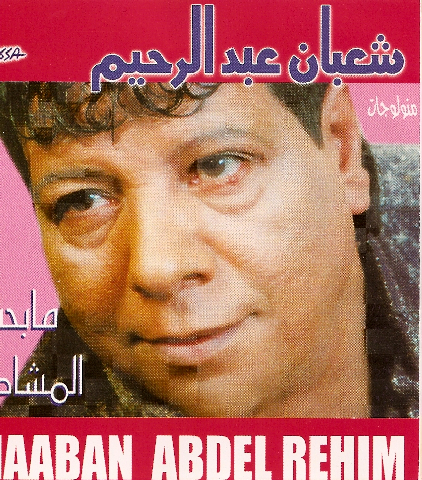
Shaaban Abdel Rehim
This ironing man sings songs against smoking while lighting up.
His lyricist is Khalil Mohamed, an Arabic teacher.
akher saaf (translated by Amina Goodyear and Sharif Soleiman)
Here's the news - the last hour
The papers - al ahram, the news
There's an unusual event. I can't believe what happened.
Little kids in a whirlpool. Who are they?
They're orphans, poor kids - it's not their fault
The husband does a lot. The wife is jealous and it's killing her.
So she pulls out a big knife and all of a sudden we have a slaughterhouse
She finished her crime and then a friend came by
We read it. It's truly the last hour
And shouldn't we care about life
We had crime - such brutality - shey'a
What's going on in the news.The last hour
****
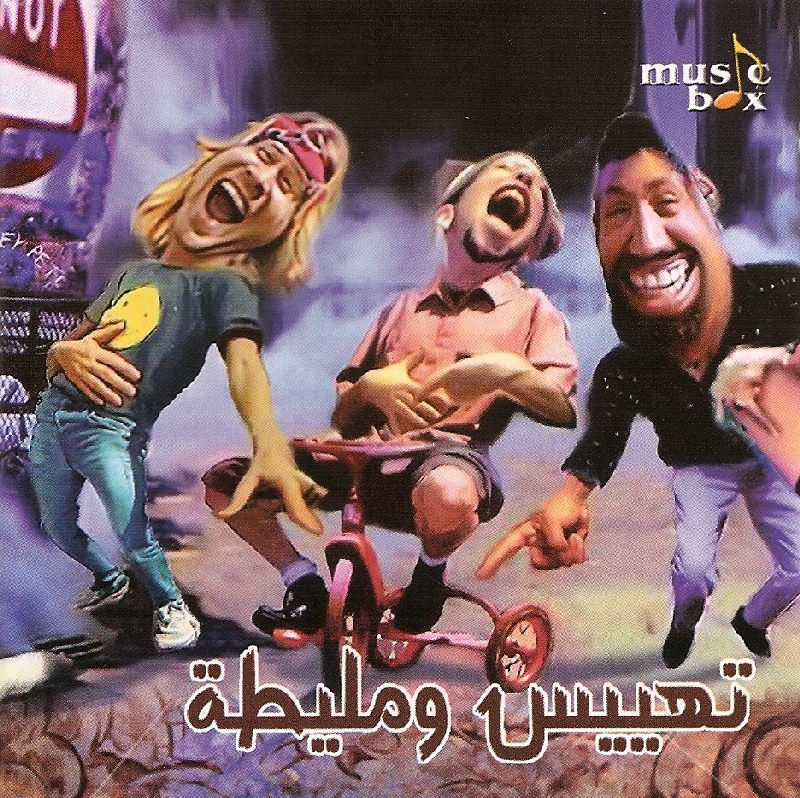
Other miscellaneous singers and songs
Aadel al Khadry
weli ya weli (translated by Amina Goodyear and
Husain Dixon)
Mawal
When the lover comes in the night
-Wake Up!
Song
Wake up.
I love her so much.
Wake up while she’s sleeping.
She tells my folks why she’s treating me so hard
I’m so tired of this. What can I do.
She took all my passion and sympathy.
“Open her flower. Sleep on her. Can see on her.”
People say
Why are you in this love.
It’s not working. It’s a hassle.
Look at her. She’ll melt your heart. I like her and the wounds.
She’s the only one in my mind.
I’ve seen so many. There’s nothing like her.
Beauty and softness makes you wonder
Tired oh my god
I got dizzy. Feel pain. Not got long.
****
Hamada Helal
ana la mastool from the movie al eyal hermit (translated Amina Goodyear and Husain Dixon)
Mawal
Once upon a time I had a lover.
What a big loss. She sold me out.
I bought her expensive
And she sold me cheap.
But – I’m not regretting nor will I cry
Song
I am not stoned, drunk, weaving or high
I just came to say Hi!
I want to see the girl who sold me.
She’s engaged to someone else.
Her family is low class
They owe me money – They’re con men.
This fiancé of my ex- fiancé is an unlucky guy.
He’ll always be poor.
Even put a lamp on his head.
I was just coming to be nice.
I want to see the one who sold me
And made my head spin.
These folks are using my money to make the wedding.
Oh my mom – Oh my dad
****
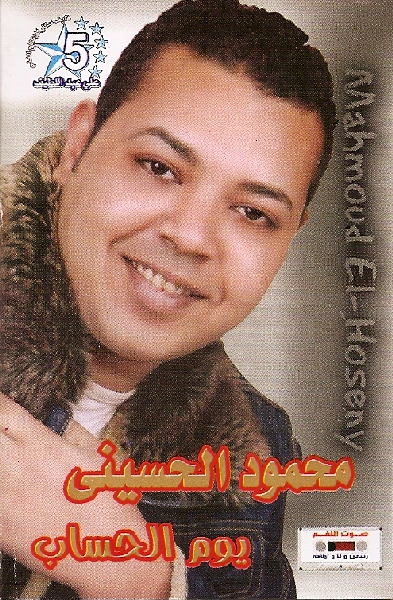
Mahmoud el Hoseny
He and Saad al Soghayar are buddies.
al abed wel shaytaan (translated by Amina Goodyear and Sharif
Soleiman)
al abed wel shaytaan
The slave and the devil
al aweleh fee al gharam
The priority is in love
bismillah bedeit wana beghani - (bedeit- started)
In the name of god (god’s blessing) I started to sing
astaghfar allah al azeem ala ma geree mini - (geree –run)
I revert to god the greatest (in fear) what happens to me
shaytaan ‘al al abed –
Devil said to the slave
warayatak al dunya we alwanha (alwan- colors – pl.)
I showed you the world and its colors
we baeit al akhra alashanha we b’eeit tikhaf tikhrug minha
vendor-judgment day became fearful to go out
And the vendor who sold eternity became fearful to go out from it.
we naseit kaman alSalat we alfarD
Sala-pray- alfarD - individual, myself)
And I also forgot my own prayers.
fee alawel garartak
In the beginning
min khebtak khadartak (Kheb – failures)
From your patheticness, I put you under (drugs)
we b’eeit taref tikzib webtelab ala gartak (tikzib
– lie, gar – neighbor)
And now you’re able to play tricks on your neighbor
Webtelab
And play
b’eeit talab we kar we betesrhab we akar
And now you play and belch and drink and belch
al abed ‘al shaytaan
The slave said to the devil
min bad matawaatlek meb’etish aref aaysh
(min bad ever since) (matawaatlek–take up your way)
Ever since I took up your ways I haven’t been able to know how
to live
we ditny liHad al nar we henak maraftineesh
You took me to hell and there you didn’t know me
al shaytaan ‘al al abed –
The devil said to the slave
metnefed wethalis methartil wetefis
(metnefed -dust you off) (wethalis – mess around)
law ayez tetnemerad Tab m anta keda kwais(tetnemerad–bite
the hand that feeds you)
If I want, I’ll bite the hand that feeds you, you’re doing
OK, why do you want to do that.
Tab manta keda kwais
you’re doing OK, why do you want to do that.
Tab manta keda kwais
you’re doing OK, why do you want to do that.
ma tula we tebshish ama anta ibn lizeina (lizeina, lit. there
you have)
like you’re going up you son of a bitch
we matwala we hashish we la aHna fee banzina
Why don’t you light up, roll some hashish and smoke, what are you
a gas station?
al abed ‘al shaytaan
The slave said to the devil
haseebak almaSee we aSwan rasul allah (aSwan-pl. prayers)
I will leave you with the and prayers of the prophet of god
we an geity habaadak baaayat kitab allah
If you came to me I will make you you go away from the psalm of the
book of god
we madam haraga aSlee mash hetaref tuSly
And the more you do it (continue) I will return to my roots and you
won’t be able to find a way to get to me.
wel nas b’ee tetalem min kul illi Hasaly min kul illi HaSaly
And the people can learn from all that happened to me
min kul illi HaSaly
from all that happened to me
****
Sheikh Sayed
al maHkama (translated Amina Goodyear
and Sharif Soleiman)
The Court
kunt mashi fee youm garahi gua alby malema
As I was walking along one day I felt the scars of the wound of my heart(.a
sign, alem=flag)
we al dumua ala khady nazleh we aini leiha masalema
and the tears (surrender) on my cheek are coming down and my eyes say
goodbye to them.
‘olt adaay rabina we rafaet ayady lilsama
So I said pray to our lord and I raised my hands to the sky
itla’etni faga – wa’af aand bab al maHkama
stop -All of a sudden I found myself standing in front of the courthouse
door
nass keteer metgamayeen al Heera maliya we shahom
A lot of people have gathered and the doubt, indecisiveness and unsureness
is filling their faces
kullihom mestineen we al khuf biyegri fee ‘albihom
All of them are waiting and the fear runs in their heart
‘olt adkhol lama ashufhom we ab’ee waHed minhom
I said go in when I see them and become one of them
shuft ‘aDee we khali’ wa’fa we Sout biyinda maHkama
I saw the judge and saw god’s creation standing and heard a sound
calling for court to come to order
shuft omiDahana wa’f kan ‘orayeb minha al Hadeed beinu
we beinha aiza takhdu fee HaDnaha - metal
I saw a mother and her child (son) standing close to her separated by
the metal bars and she wants to hold/hug him
al dumua maliyan ainiha wal’ala’ bein aliha
The tears are full in her eye nd the anxiety is obvious on her
‘albiha maHroof aleh abnaaha Da’ee minha
Her heart is burning about him, her son has been lost from her
faDlet teSrakh teday we tebky wala Hadish keda Hassass beyeha
She continued to scream in prayer and she cried and nobody can feel
her feeling
we ady ab alashan benatu mada eedu we lil Haram
And I gave a father because his daughters made him extend his had to
sin
al naharda biyeshky Halu min hayesamalu kalam
Today he complains about his status of life and who will listen to his
words
khaf alihom min al zaman ‘al yeseebhom fee al aman
He’s worried about them from the times so he said I’ll leave
them somewhere safe
baa Dameeru we ghaSeb aadukal da fee li Hazah shaytaan
He sold his consciousness and was forced upon him al this in a moment
of this devil
we aho dilwa’ti biyibki we khayef min illi hayHaSl tany kaman
And here now he’s sobbing and fearful from what else will happen
shuft shaab ya nass biyibky fee al’afeS lama gabu kan biyeHelm
yeb’ee Haga kan amel amu we abu
I saw a young man ya nass, he’s sobbing in the cage - when they
brought him he was dreaming to be something one day and that was the
hope of his mother and his father.
gom SaHab al suq khadu we bikalamhom gheiru – nassu – kul
aizeez we ghali we fee Tari’ hom Daya’u
They’ve come, the traders of the suq, and took him and with their
words they changed him and they made him forget everyone near and dear
to him and in their road they made him get lost.
we lama fee wa’t al shadda aHtagahom atkhalu anihom we sabu
And when the tough times came he needed them and they didn’t keep
their promise and they left him.
we ady we aHad fo’ katafu Hamel at’al min al gabal
And I gave one person up and they restrained upon him a weight that’s
heavier than a mountain.
antahat ya nass Hayatu we fee re’abitu kom ayal
And it ends ya nass oh people– his life around his knees
and a heap of kids
waSalu akher aTari’ meen ya’ool anu bagry kilma wahed al’aDy
‘alaha Diyaatlu kul shi
They go down the end of the road who says what word and one judge told
him you made him lose everything
meen ba’ee Hass bigri Hu we naru we hua fee damua ghereeq
Who’s left who can feel his wounds and his fire and meanwhile he’s
drowning alone in his tears
shuft aTfal we al berah gua men hom ma Hebusheen
I saw children and innocent ones prisoners inside of themselves
tahu fee al dunya al kabeer we homa lessah Saghyareen
They’re lost in the big world while they’re still small.
sika waHeda aly gabethom fee al damuaa ya nass ramethom
One way has brought them to the tears, ya nass, and gotten rid of them
(dumped them)
ma’Tuaayeen fee al dunya deeya we al shuarae heya beyethom
they’re stuck in this world and the streets are their home.
wala fee HaDn Haneen Tayeb fekra youm yamseh damaethom yameseh
And there’s no warm hug and they can’t even think of a day
when someone can wipe their tears.
ya leli fakra anak entah bess liwaHdek fee al azaab la taaly fee
nass keteera da enta wara’ min kitab
You who thinks that you’re alone in misery, there are many people
like this, you’re only one page in a book
‘ool ya rab we hatla’eeh aish we khaly ayamanabeyah
Say ol lord, and you will find bread and keep your faith in him.
da ali shaif gerah gheiru we garhu hua yehun aleh
Those who can see the wounds of others and don’t do anything about
it
Ahmed rabina mohema adalek we awaee te’oolu ya rab da leh
I bless my god no matter how much he gave you and never say why is this,
god.
****
Dilwa’ti baadi youm (translated by Amina Goodyear and Sharif Soleiman)
Complaining how people are too rough - Life is too hard
People have forgotten to have mercy with each other
Dilwa’ti baadi youm
Now after a day
Baadi saa
After an hour
Baadi saniiya
After a second
Aw baad el omr
Or after a lifetime
El moohem nowasal ill niheya
The importance – we arrived to some conclusion
Bukra nos aya
Tomorrow half --
Kuli nass
All the people
Youm el hisab ma raaab
The day you face god (unsettled business)
We neb’a arfeen kullina youm el hissaaab maa rabina
And we all know the judgment with the lord
Han oollu eh rabina
what are you going to say to our god
Al kul mish amel el hisab bashar
Everybody’s not ready for judgment day– haved added their
bill
We neb’a arfeen kullina youm el hissaaab maa rabina
And we all know the judgment with our lordd
Zai el ziab zai el wuhush
Like the foxes, like the monsters
Bes el bermoosh il basher
But the eyelashes of the humans (the look of the the humans)
Isma we nasib
The fate and that you got
Zai es el talg
The people are cold (like ice)
****
Horus (translated by Amina Goodyear and Ayman Kozman)
Horus (Egyptian god)
We get all the words from the underground
Get outa my way - whole neighborhood, ya basal (oh onion)
get outa my way.
We've said alot of things kulu marra (all the time)
shuga bugu (like boogie woogie)
We bring the word to the bees
and whoever wants to be with me start singing.
halawa, ya basal (sweety, oh onion)
we said alot of things
we've done a lot of thing
kulimaada ala fada - based on the proverb of our town, whatever
has happened is gone.
the past is over with/done with Horus (Egyptian god)
****
Denga Denga, Sigar Boni
and more songs to come soon
© 2009 Amina Goodyear
please do not copy to your site without permission and crediting the source.
References: Al Ahram, Walter Ambrust, Nicholas Puig, Michael Frishkopf, James Grippo, Jennifer Peterson, Debbie Smith's and my personal research and the internet
If you are interested in learning to create dances to Shaabi music come Amina's classes especially Tuesday p.m. - also available for private sessions.
Amina teaches Shaabi dance at BDUC 2011
HOW TO DANCE TO EGYPTIAN
SHAABI MUSIC
Shaabi music is the music of the "popular" or
working class people in Egypt. It is the voice of the street and is
full of feeling, double entendres and social commentary. This workshop
will show you how to move and dance to Egyptian Shaabi music as well
as give a little background and history of its roots. A short choreography
will be taught as an aid to learning how to dance to the music. Song
translation included.
See you there!
The
Aswan Dancers
829 Elizabeth Street
San Francisco, CA 94114
(415) 282-7910 aminajune@aol.com